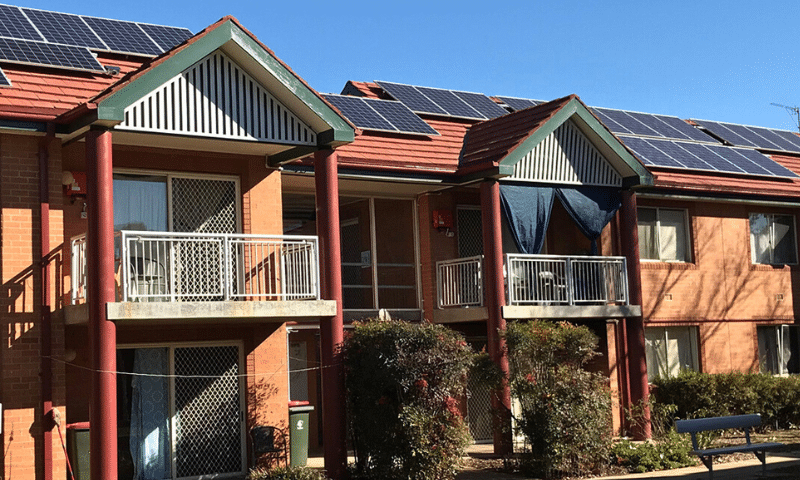Financial Year 2023-2024: What's Coming from July 1?
As the financial year comes to an end, Australia prepares for several important changes set to take effect on 1 July 2023. These changes span various sectors, including energy bills, solar energy rebates, aged care, minimum wage and more. In this article, we will delve into the details of these upcoming alterations, highlighting their significance and potential impact on individuals and the wider community.
Switching to a better plan? You may already have an energy plan but want more power or to shop for a better deal.
Energy Matters’ “Energy Bill Comparator” is a cutting-edge energy comparator tool that allows you to compare your area’s most competitive retail offers. We collect the data from our wide range of trusted retailers, allowing you to decide about changing your plan.
If your goal is to get more electricity and minimise the cost of your gas and electricity bills, switch to a better plan now!
A cost-of-living crisis, with power bills expected to rise
The Australian Energy Regulator (AER) confirmed that energy prices in NSW, South Australia, and southeast Queensland would rise by 19.6 per cent to 23.9 per cent on July 1, 2023. Small business owners will also face a hike in the next fiscal year ranging from 14.7% to 28.9%, depending on area.
$500 energy bill relief payment
The Australian government has announced a $500 energy bill relief payment for qualifying households in an effort to alleviate the financial stress placed on Australians who face high power bills. However, eligibility for this payment differs depending on where you live, as each state has its own set of requirements.
Visit our page to learn more about the federal budget 2023 commits $3 billion to households and small businesses’ energy bill relief payments.
Solar energy rebates: Certain states have made measures that affect homeowners and renters
Recognising the importance of transitioning towards clean energy, the New South Wales (NSW), ACT and WA government has introduced various alterations to solar rebates, incentives, and subsidies to encourage the adoption of solar power systems.
The Solar for Low Income Households Program in NSW aims to make solar energy more accessible to low-income households lowering power bills and encouraging the usage of sustainable energy in economically disadvantaged communities.
The ACT Sustainable Household Scheme’s new eligibility changes are effective July 1, 2023. All scheme products, except solar, are available to stand-alone homes (non-unit titled properties) with an unimproved value (UV) of $750,000 or less in 2022. The property’s UV in 2022 must be $450,000 or less to qualify for solar under the scheme. On the other hand, unit-titled properties are eligible for all program products if their unimproved value is $300,000 or less in 2022.
Synergy is the power provider for Western Australian solar households in Perth and the southwest part of the state, and they get a solar feed-in tariff (FiT) under the Distributed Energy Buyback Scheme (DEBS).
DEBS rates for Synergy customers as of:
1 July 2023
- Peak-rates: Electricity exported between 3pm to 9pm earns 10 cents per kilowatt-hour (kWh);
- Off-peak rates: Electricity exported between 9pm and 3pm earns 2.25 cents per kilowatt-hour (kWh).
2021-2022
- Peak-rates: Electricity exported between 3pm to 9pm earns 10 cents per kilowatt-hour (kWh);
- Off-peak rates: Electricity exported between 9pm and 3pm earns 2.5 cents per kilowatt-hour (kWh).

Image: NSW Governement-Installed rooftop solar on social housing in Dubbo, NSW.
Read more about solar rebates and FiT
- Solar Panel Rebate & Renewable Energy Subsidy Information
- Home Solar Rebates, Incentives & Subsidies In Australia
- Commercial Solar Rebates, Grants & Incentives
- Solar Battery System Rebates, Subsidies, & Incentives
- Australian Solar Feed in Tariffs Information
Minimum wage increase
On 1 July 2023, the minimum wage in Australia will undergo a rise, affecting millions of workers across various industries. The Fair Work Commission, responsible for setting minimum wage rates, has announced a 2.5% increase, which amounts to $20.33 per week or approximately $1,057.80 per year for full-time employees.
This increase aims to address issues of wage stagnation and support workers in maintaining a decent standard of living. However, it is crucial to note that the minimum wage rise may vary across different awards and employment sectors, so it is advisable to consult the Fair Work Commission website or seek professional advice for specific details.
Still can’t afford to switch to solar power? Are you considering getting solar panels but are currently short on funds? You can still invest wisely, and Energy Matters can help you.
Powow and Energy Matters have teamed up to provide consumers with an alternative to switching to solar power and battery storage.
The biggest obstacle to installing solar and battery storage is typically finance. With Powow’s PPA and VPP, our customers will have a $0 upfront option and financial stability in the uncertain energy market.
Get up to 3 obligation-free quotes by getting in touch with us right away. Find out what payment plan options suit your needs and budget!
Aged care reforms
The Australian government is implementing significant reforms in the aged care sector to enhance the quality and accessibility of services for older Australians. These reforms aim to address the findings of the Royal Commission into Aged Care Quality and Safety.
As Australia ushers in the new financial year, several key changes are set to come into effect on 1 July 2023. The aged care sector will witness significant reforms aimed at improving the quality of services and support for older Australians. Meanwhile, the minimum wage increase will provide much-needed relief for workers across various industries. Additionally, changes in energy bills seek to protect consumers from excessive pricing and promote renewable energy adoption.
To understand the implications
It is important for individuals and businesses to stay informed about these changes and understand their implications. To obtain accurate and up-to-date information, it is recommended to consult official government websites, and relevant authorities, and seek professional advice where necessary. These changes mark a significant step toward addressing crucial issues and shaping a better future for Australians in various sectors of the economy.
Energy Matters has been a leader in the renewable energy industry since 2005 and has helped over 40,000 Australian households in their journey to energy independence.
Let us discuss and choose the best quote that suits your needs and budget, and we can connect you with our trusted local installers, who will provide up to 3 FREE quotes for your home and business solar energy system. Get your free quotes today!















































